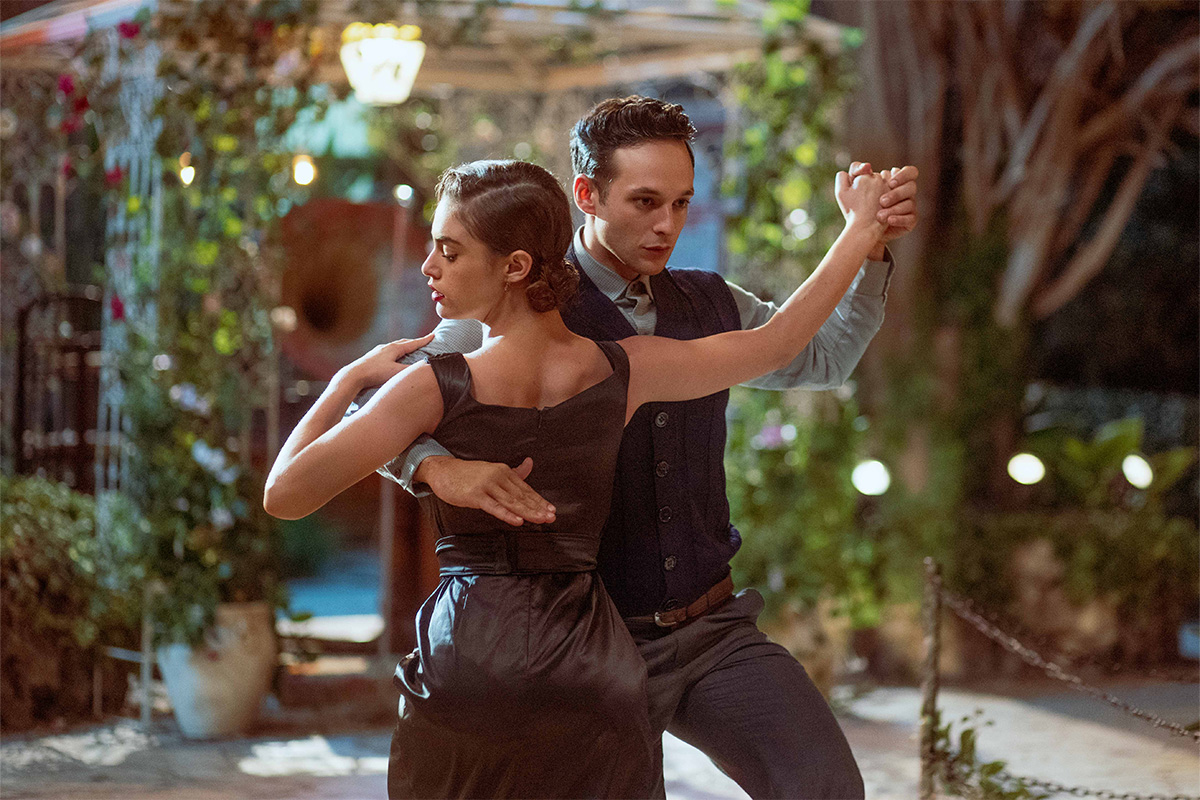Spoilers ahead for the novel “The Beauty Queen of Jerusalem.”
If you are a fan of Jewish history, culture, or the literary genre I like to call “historical tales of tortured mother-daughter relationships where no one is romantically satisfied” then I have the book for you: “The Beauty Queen of Jerusalem” by Sarit Yishai-Levi. Recently picked up by Netflix and turned into a show of the same name, the first ten episodes will be released on May 20, 2022. And while I’m incredibly excited to consume every episode as many times as needed, it would be a mistake for anybody to overlook the book.
Chronicling four generations of women in the Ermosa family, this international bestseller is set in Jerusalem, where it takes readers from the end of the 19th century to just after the War of Independence in 1948. At the heart of the novel is a curse: The women in the Ermosa family are cursed to fall in love with and marry men who do not love them back. The vast majority of the story is chronological, though the book opens with the death of Luna, the eponymous beauty queen. Luna’s daughter Gabriela struggles to mourn her mother’s death, and after her initial introduction, the story starts at the beginning, rotating among different characters’ points of view as it investigates why the Ermosa women are so unhappy, and ending with Gabriela as well.
These relationships between the women are the core of the book, and it is a unique exploration of the needs, desires and unfulfilled hopes of Jewish women throughout history. Though the novel rarely focuses in great detail on the historic time period in which it is set, which might annoy some readers, Yishai-Levi’s strength is portraying personal inner conflict bubbling under larger, outside forces. Her carefully crafted female characters grapple with life, love, and how to respond to the choices made by the men in their lives with a realism and poignancy that more than does justice to the dramatic era in which it is set. Here, women ask one another questions that Jewish women have asked themselves for thousands of years, but set in a modern time of conflict and choice, and the answers feel different.
The curse of the Ermosa women originated, perhaps fittingly enough, with a man. In the late 1800s, Raphael Ermosa, a “Spaniol,” falls in love with an Ashkenazi girl he sees at the market in Jerusalem. He is so entranced he cannot even study Torah and wanders the city at night hoping to find her again. As a Sephardic son, he knows his parents would never approve of him marrying an Ashkenazi girl, and so eventually he gives up his search, and allows himself to be married to a fellow Sephardi woman, Mercada. The marriage is prosperous but loveless, despite the joy brought to Raphael and Mercada by their son Gabriel.
One day, Gabriel sees the same Ashkenazi woman and her daughter while working at the Ermosa family stall at the local market, and is instantly taken with the daughter, Rochel. Unlike his father, he pursues and attempts to marry Rochel, leading to a scandal throughout Jerusalem. When Raphael dies suddenly, Mercada sees this as the spiritual world taking revenge on her family for her son falling in love with an Ashkenazi woman and decides to set everything right by exacting her own revenge and marrying Gabriel off to a woman he has never seen before, Rosa. Together, Gabriel and Rosa have three daughters.
This now brings us closer to the modern period, and the most fascinating stories in “The Beauty Queen of Jerusalem” concern the childhood and adolescence of Rosa and Gabriel’s daughters. The second born, Rachelika, joins the Haganah in high school, the underground Zionist paramilitary group intent on driving the British out of Palestine. She struggles with her sister, Luna, who is mostly excited to plan her wedding to David, a man who left the Italian-Catholic woman he loved in Italy to fulfil his duty of marrying a Jewish woman and living in Israel. Though she too will be unloved, Luna is comfortable living a frivolous life despite growing violence in the aftermath of World War Two, and the two sisters have real differences. One of the most poignant scenes of the novel is when Rachelika scolds Luna, saying “The ground is on fire, the entire history of the Jewish people is in the balance and you’re talking about weddings.” Luna and her mother Rosa also struggle to get along, unhelped by the fact that Luna is the favorite of Gabriel, and some of the most powerful and heart-breaking descriptions by Yishai-Levi concern Rosa and Luna’s relationship — “My mother brings out all the demons in me,” Luna explains to David — and Luna’s disappointment after her marriage to David, when it becomes clear she has also been “cursed.”
As we go through these relationships, Yishai-Levi asks the questions of Jewish history that many Jews find inescapable: What does it mean to be cursed, to be a people who still talk about weddings when the ground is on fire, to see continuation as a duty but not a source of joy?
The novel also questions the price women pay to keep the Jewish people alive. Throughout the “The Beauty Queen of Jerusalem,” once the men have impregnated their wives, they feel their duty is complete. They have continued the Jewish people. It is then up to the woman to raise their children. The Biblical parallels feel resonant. Like the Biblical story of Jacob, Leah, and Rachel, Gabriel feels deceived into marrying Rosa, who he has not seen before the wedding and whom he does not find attractive. On various escapades he finds more than one “Rachel,” while Rosa, like Leah, is convinced once she has a child, her husband will love her. With a skillful nuance, Yishai-Levi deftly weaves these ancient Jewish concerns of continuity and fertility and love with modern commentary on gender expectations as the stories unfold. The duty to have children is the only way to assure the continuation of the Jewish people. Indeed, the very first covenant God makes with Abraham in the Bible, this “everlasting covenant,” is not only between them, but between God and Abraham’s “numerous” future descendants. But if there are no descendants? How will the covenant stay alive? There must be children. And yet, at the moment of highest stakes in the novel, the reader is left to wonder: Should one talk of weddings — should a woman’s life be only concerned with weddings — when the fate of the Jewish people is at hand, and Jerusalem on fire? It is a question that goes asked but never quite answered.
Yisha-Levi’s ability to tease out the inner turmoil of her characters, all of whom have made sacrifices to uphold their Jewish beliefs, is subtle but powerfully effective. Raphael forgetting the Ashkenazi woman from the market, Gabriel deciding he must honor his mother and marry Rosa, David leaving behind the Italian-Catholic woman to marry a Jewish woman and have a Jewish home in Israel. The women become the unfortunate victims of their husbands’ Jewish fidelity. While divorce is permitted in Judaism, the unhappy women never even consider it an option. Jewish holidays and life cycle ceremonies structure the rhythm of all the characters’ lives. They take seriously the mitzvah to have children, even if they are not in love with their spouse. This is a book about duty and its costs as much as it is about love and its pains, and thus a story about Israel as much as it is about the Ermosa family.
I am excited Yishai-Levi’s sweeping historical novel has been translated into so many languages and that the Netflix series will no doubt bring more attention to it. Her ability to describe feelings women have been taught to keep to themselves will make her novel relatable to whoever picks it up, regardless of religion. And with Michael Aloni of “Shtisel” fame playing Gabriel in the Netflix series, I am ready for my heart to break all over again with the Ermosa women.



